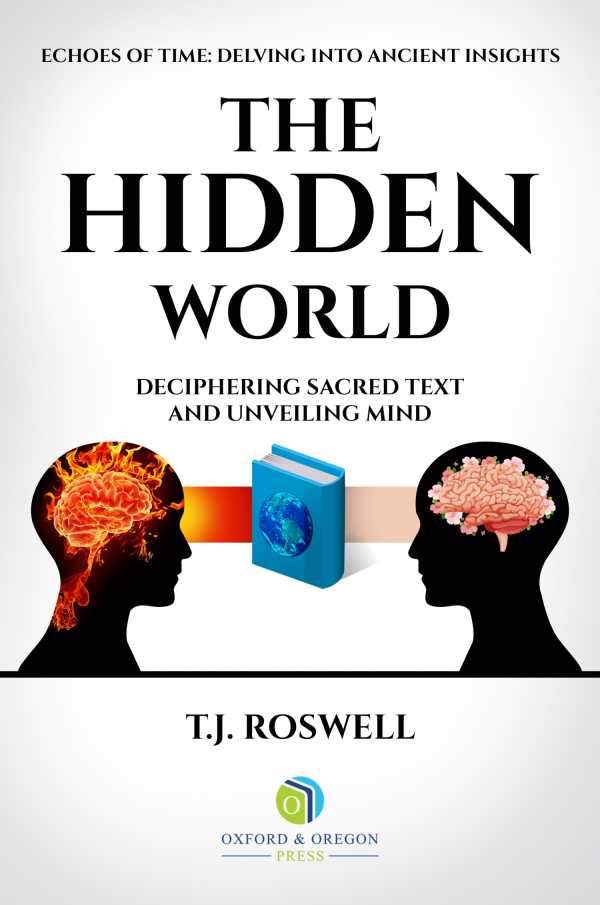The Hidden World
Deciphering Sacred Texts and Unveiling the Mind
The Hidden World‘s linguistic analysis of the Qur’an leads into unique exegetical arguments.
Intermingling two disciplines, T. J. Roswell’s book The Hidden World argues that the Qur’an is about balancing the human psyche.
Commentaries and modern interpretations of the Qur’an force literalist and traditionalist contexts onto its lessons, according to Roswell. Rather than being a guide for pure religious observance, he says that the Qur’an holds ancient wisdom about psychological self-awareness as well as socio-moral harmony. His book asserts that concepts like paradise and hell are, in actuality, inherent parts of the human brain that foster positive and negative thought processes. Through the transcendence of the material form of Qur’anic stories, it says, cognition and emotion become clearer.
The book’s analysis centers on definitions of classical Arabic terms, which are said to have been corrupted by modern understandings and by the Bible. Whereas most texts translate nafs as “soul,” this book translates it as “psyche.” Similar analyses are given to terms like rijal and nisa, often translated as “man” and “woman”—here, made abstract, with the definitions of “active” and “passive.” And the book further analyzes Qur’anic quotes to argue for the prevalence of personal psychological messages throughout the book, as where it suggests stories about finding inner tranquility. And some Qur’anic concepts are linked to contemporary mental illness, as in the section about different kinds of thoughts, as described by psychologists. Such analyses are intriguing. Further, alternate interpretations are dismissed or go unmentioned, leading to an insular text of limited persuasiveness.
The book also includes lengthy expressions of religious skepticism and posits that all religions hold similar truths. It critiques literalism; it also makes the provocative claim that positive internality can cascade into other aspects of society, like politics and law, though some such ideas are undersupported. Still, it works to remain objective with its linguistic analyses, setting itself apart from historical Qur’anic commentaries and modern contexts with intention, though its rampant criticisms of modern practice and practitioners are somewhat at odds with this work. Religious figures and nation-states are called out many times and are accused of falsifying and manipulating the Qur’an’s teachings for political and legal gain; this work is somewhat antithetical to a suggestion that Roswell may be the one person who can get at the pure, original intent of the Qur’an.
Using a fresh interpretation of the Qur’an to encourage positive psychological self-orientation, The Hidden World forwards unique exegetical arguments for awareness around mental instability.
Reviewed by
Aleena Ortiz
Disclosure: This article is not an endorsement, but a review. The publisher of this book provided free copies of the book and paid a small fee to have their book reviewed by a professional reviewer. Foreword Reviews and Clarion Reviews make no guarantee that the publisher will receive a positive review. Foreword Magazine, Inc. is disclosing this in accordance with the Federal Trade Commission’s 16 CFR, Part 255.

